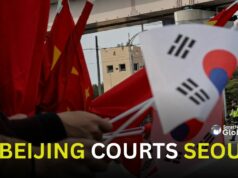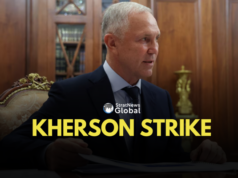Thailand has called upon the Association of Southeast Asian Nations (ASEAN) to play a more assertive role in resolving the ongoing crisis in Myanmar, highlighted by recent conflicts near the Thai border that have disrupted trade and led to a temporary refugee influx.
Myanmar is currently entrenched in a civil war, opposing the military against a coalition of ethnic minority armies and a resistance movement that emerged following the military’s severe crackdown on dissent after the 2021 coup. This situation has prompted ASEAN to devise a peace plan, which although agreed upon by Myanmar’s military rulers, has seen limited implementation. This partial adherence has resulted in divisions within ASEAN and significant frustration among its leading members.
Thai Foreign Ministry spokesperson Nikorndej Balankura expressed Thailand’s desire for a more engaged ASEAN, noting ongoing discussions with Laos, the current ASEAN chair, and Myanmar regarding the volatile situation.
The conflict escalated when resistance fighters and ethnic minority rebels captured Myawaddy, a crucial trading town on the Myanmar-Thailand border, challenging the Myanmar military’s ability to govern effectively. Although the rebels have since retreated following a military counter-offensive, and most refugees have returned to Myanmar, the proximity of the conflict to Thailand has intensified calls for greater action from ASEAN.
Thailand has proposed an ASEAN meeting to address the crisis, suggesting the inclusion of Laos, the previous chair Indonesia—who has attempted to engage with the junta’s opposition—and Malaysia, the chair for the following year. This proposal aims to rejuvenate the peace process outlined in ASEAN’s 2021 peace plan, under which the ASEAN chair is responsible for appointing a special envoy to advance dialogue—though current efforts by the Laotian chair have been minimally disclosed.
The ongoing conflict represents Myanmar’s military’s most significant challenge since its initial seizure of power in 1962, involving numerous low-intensity conflicts and a steadfast refusal to negotiate with who it calls “terrorists”.
With Inputs From Reuters




